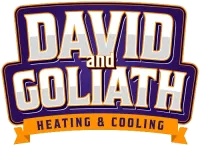Keeping Your Heater and Furnace Drain Safe During an Overnight Freeze
As winter approaches, it’s crucial to ensure that your home’s heating system is up to the challenge of an overnight freeze. Your furnace and furnace drain are particularly susceptible to the cold, and a little preparation can go a long way in preventing costly repairs and ensuring a warm, comfortable home. Here are key things to look out for with your furnace and furnace drain during those freezing nights.
Furnace Filters
First and foremost, check your furnace filters. A clogged or dirty filter not only reduces efficiency but can also strain your furnace, leading to more significant problems. Regularly changing the filters ensures proper airflow and furnace operation.
Thermostat Settings
Keep an eye on your thermostat settings. During a freeze, it’s advisable to maintain a consistent temperature to prevent the pipes from freezing and to reduce the strain on your furnace. Avoid setting your thermostat too low, as this can cause your furnace to work overtime when it needs to reheat your home.
Pilot Light and Ignition System
For gas furnaces, the pilot light or ignition system should be in good working order. If you notice that the pilot light is out or the ignition system is malfunctioning, it could indicate a problem that requires immediate attention.
Inspect the Furnace Drain
The furnace drain, or condensate drain, is crucial for removing water that condenses during the heating process. During a freeze, this drain can become clogged with ice, leading to water backing up and potentially damaging your furnace. Regularly inspect the drain for blockages and ensure it’s insulated if exposed to the cold.
Ventilation Check
Ensure that the furnace’s ventilation system is clear. Blocked or restricted airflow can cause the furnace to overheat or, worse, lead to dangerous carbon monoxide buildup inside your home.
Regular Maintenance
Routine maintenance is key. Have a professional HVAC technician inspect and service your furnace annually. They can identify issues that may not be immediately apparent and ensure your furnace is in top condition to handle the cold.
Be Prepared for Power Outages
In case of power outages, have a backup plan. Portable generators can be a lifesaver, but remember to use them safely and never inside the house due to the risk of carbon monoxide poisoning.
Listen for Strange Noises
Pay attention to any unusual noises coming from your furnace. Banging, whistling, or grinding sounds can indicate a mechanical problem that needs to be addressed.
Check for Drafts
Drafts around windows and doors can force your furnace to work harder. Sealing these drafts can help maintain a consistent temperature and reduce the strain on your furnace.
Know When to Call a Professional
Lastly, if you’re ever in doubt or notice something amiss with your furnace or furnace drain, don’t hesitate to call a David & Goliath HVAC. It’s better to address small issues before they turn into larger, more expensive problems.
An overnight freeze doesn’t have to be a nightmare for your furnace and furnace drain. By being proactive and vigilant, you can ensure that your home remains warm and safe throughout the coldest nights.
Your HVAC Contractor,
David & Goliath HVAC
Keeping Your Heater and Furnace Drain Safe During an Overnight Freeze
As winter approaches, it’s crucial to ensure that your home’s heating system is up to the challenge of an overnight freeze. Your furnace and furnace drain are particularly susceptible to the cold, and a little preparation can go a long way in preventing costly repairs and ensuring a warm, comfortable home. Here are key things to look out for with your furnace and furnace drain during those freezing nights.
Furnace Filters
First and foremost, check your furnace filters. A clogged or dirty filter not only reduces efficiency but can also strain your furnace, leading to more significant problems. Regularly changing the filters ensures proper airflow and furnace operation.
Thermostat Settings
Keep an eye on your thermostat settings. During a freeze, it’s advisable to maintain a consistent temperature to prevent the pipes from freezing and to reduce the strain on your furnace. Avoid setting your thermostat too low, as this can cause your furnace to work overtime when it needs to reheat your home.
Pilot Light and Ignition System
For gas furnaces, the pilot light or ignition system should be in good working order. If you notice that the pilot light is out or the ignition system is malfunctioning, it could indicate a problem that requires immediate attention.
Inspect the Furnace Drain
The furnace drain, or condensate drain, is crucial for removing water that condenses during the heating process. During a freeze, this drain can become clogged with ice, leading to water backing up and potentially damaging your furnace. Regularly inspect the drain for blockages and ensure it’s insulated if exposed to the cold.
Ventilation Check
Ensure that the furnace’s ventilation system is clear. Blocked or restricted airflow can cause the furnace to overheat or, worse, lead to dangerous carbon monoxide buildup inside your home.
Regular Maintenance
Routine maintenance is key. Have a professional HVAC technician inspect and service your furnace annually. They can identify issues that may not be immediately apparent and ensure your furnace is in top condition to handle the cold.
Be Prepared for Power Outages
In case of power outages, have a backup plan. Portable generators can be a lifesaver, but remember to use them safely and never inside the house due to the risk of carbon monoxide poisoning.
Listen for Strange Noises
Pay attention to any unusual noises coming from your furnace. Banging, whistling, or grinding sounds can indicate a mechanical problem that needs to be addressed.
Check for Drafts
Drafts around windows and doors can force your furnace to work harder. Sealing these drafts can help maintain a consistent temperature and reduce the strain on your furnace.
Know When to Call a Professional
Lastly, if you’re ever in doubt or notice something amiss with your furnace or furnace drain, don’t hesitate to call a David & Goliath HVAC. It’s better to address small issues before they turn into larger, more expensive problems.
An overnight freeze doesn’t have to be a nightmare for your furnace and furnace drain. By being proactive and vigilant, you can ensure that your home remains warm and safe throughout the coldest nights.
Your HVAC Contractor,
David & Goliath HVAC


